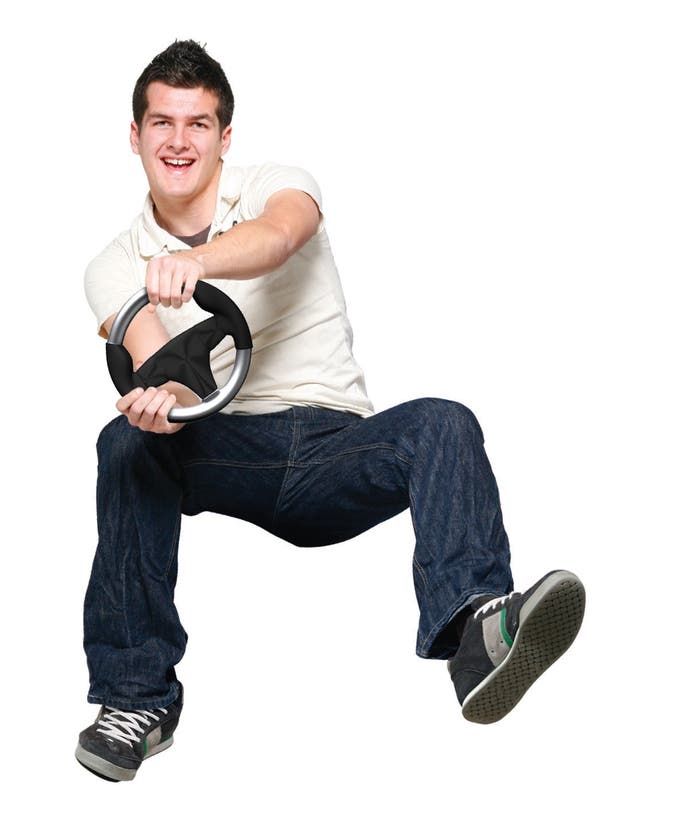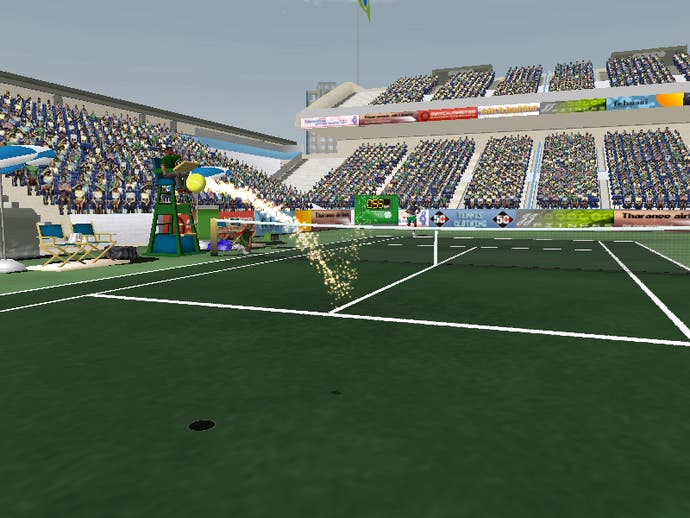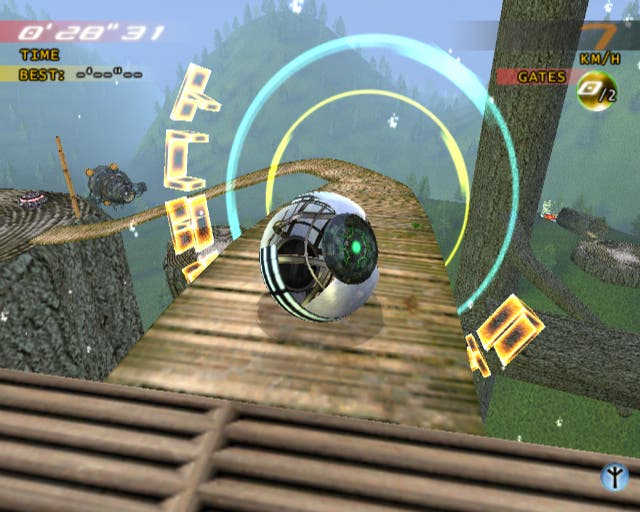In2Games
Weird sci-fi controllers for PS2! And a Wiimote for PS3 and 360!
"Let me tell you a secret" whispers Harry Holmwood, director of the In2Games development team, looking around and leaning a little closer. "When I've got friends around playing Singstar, I get out my microphone stand. It massively boosts the experience."
It takes a few seconds for us to get past how weird an image this is, and to understand that it's a genuinely great idea. But then what else would you expect from a man who organises the creation of console peripherals for a living, dabbling in ideas as far flung as feet-mounted motion sensors. We've just left a room containing the more successful of his team's concepts - the RealPlay range, each of which will be released in a pack containing one fairly cheap plastic peripheral and a bundled game to go with it, to be released on PS2 in time for Christmas.
Holmwood explains the reasoning behind it. "The peripherals market has always been very static. It's all about copying what Sony or Nintendo or Microsoft or Sega has done, because whatever you make, it has to work with everyone's games. Here, we can be creative because we're making the controller and the game."
And why PS2? "A lot of people have written off the PS2 - they've moved on too quickly. People always forget that even after the PS2 was released, the charts were still full of things like Dance Mat games for the PSone. From a company perspective, there's a market for us here."

And judging from our playtests, In2Games might be onto a few winners. Puzzle Sphere is a kind of irritatingly taxing yet addictive Marble Madness/Monkeyball type affair, but you control it with a sci-fi looking silver ball that sits in your upturned palm (which makes it, yes, the spitting image of the psi-ops ball from System Shock 2). To control the way the on-screen ball rolls you tip the off-screen ball, occasionally making use of an airbrake via a button on the top.
"I like games like Katamari. That kind of rolling around... thing." says Holmwood, just before noticing we're involuntarily clenching our off-hand whenever the ball starts teetering on a ledge. Fortunately he quickly makes us feel better by telling us about the time he got so into a game of Wipeout on the PSone he fell of his chair. Bless.
The other games on display are a little less impressive. There's a racing wheel with no base but built in accelerometers, and for an image of how that works imagine playing a driving game with a dinner plate. More odd is the pool cue for games of virtual pool, which is awesomely pointless because you use buttons on the cue to set the angle of the shot, leaving you to just thrust it forward in any direction like a javelin. Still, one out of three ain't bad, especially considering RealPlay Tennis, Bowling and Golf are all in development too.
But something about all this doesn't sit right. The swanky London building we're in seems a little too swanky for some budget PS2 christmas releases. Hell, the elevators shafts and the elevators themselves here are made entirely of glass, letting you see all the smoothly polished inner machinery and steel cables as you're silently hauled up or down to your floor. Asking about this, Holmwood somehow manages to reply in an off-the-cuff manner that In2Games has also been given £8 million by an investment group to develop its third party Wiimote-alike called 'Freedom', that's to be released for PS3 and 360 in Easter of next year.

But the way Holmwood tells it, what the company is working on now is even better than a Wiimote.
"Wiimotes are... okay for things like acceleration, but if you move them around too quickly they get confused. And they don't know where they are. This is allowing Sony and Microsoft to do everything Nintendo has done, but better."
The deal is that Freedom will have all the functionality of Nintendo's much-lauded device with extra precision, as well as locational positioning. So if you wave it from left to right it won't just tell your console it's moving horizontally at whatever speed, it'll tell your console it's moving from co-ordinate x to co-ordinate y at whatever speed.
The potential here's obvious, but Holmwood can't resist giving us a few examples. "The obvious stuff is like, Golf or Tennis where you have proper controls. The game will know exactly where your racket is and what angle you're holding it, so we can draw graphs that let the program code know whether you're backhanding or slicing it. And that feels great. There's so much here that in the past no one's ever been able to do."
"One of the minigames we've got is that thing where you're guiding a metal hoop along a wire [buzz bar]. Or, say you were doing a Buzz-type quiz game. One of the things you've got to do in Buzz is say 'I'm gonna be this player' then change where you're sitting, but we don't need to do that because we know where you are. Or if you were playing a kind of Pass-the-Bomb mode, you could physically pass the controller from one player to the next."

What else can we tell you? Well, Holmwood tells us it won't look like a remote control. "More like the Nunchuk", he says.
It's exciting news. If Freedom takes off, gamers everywhere will win no matter which console they've thrown their lot in with. 360 and PS3 gamers will get to play ported Wii games (and other, more specific stuff that takes advantage of the Freedom's positional feedback), and Wii owners should see more games released since with the option of multiformat releases there'll be more money in them for publishers and developers. In console wars, everybody loses. It's nice to see a friendly British development team with a whole lot of funding trying to build some bridges.








